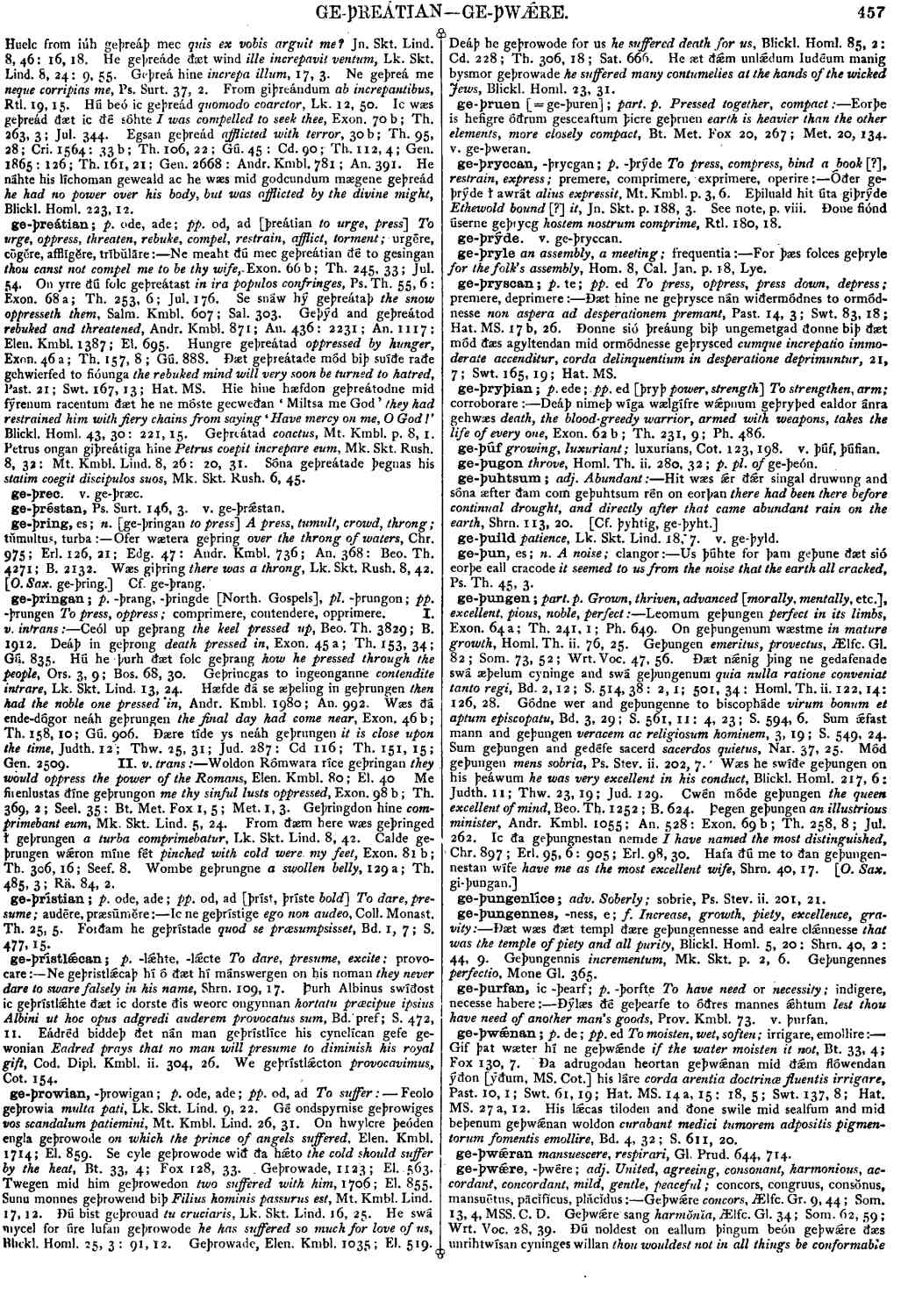ge-þwǽre
- adjective
-
Geþwǽre concors, Ælfc. Gr. 9, 44; Som. 13, 4, MSS. C. D. Geþwǽre sang
harmŏnĭa,
- Ælfc. Gl. 34; Som. 62, 59; Wrt. Voc. 28, 39.
-
Ðú noldest on eallum þingum beón geþwǽre ðæs unrihtwísan cyninges willan
thou wouldest not in all things be conformable to the will of the unrighteous king,
- Bt. 27, 2; Fox 96, 16.
-
Sum hafaþ mód and word monnum geþwǽre
one has mind and words agreeable to men,
- Exon. 79 b; Th. 298, 15; Crä. 85.
-
Þegnas syndon geþwǽre
the thanes are united,
- Beo. Th. 2464; B. 1230: Exon. 9 b; Th. 8, 33; Cri. 127: 89 b; Th. 336, 29; Gn. Ex. 57.
-
Wurdon ealle gereord geánlǽhte and geþwǽre
all languages became united and concordant,
- Homl. Th. i. 318, 24.
-
Ða geþwǽran yrfweardiaþ eorþan
mansuēti hæreditabunt terram,
- Ps. Spl. 36, 11.
-
On geþwǽrum limum
in agreeing limbs,
- Bt. 33, 4; Fox 130, 39.
-
Ðonne hit ǽfre geþwǽrust sý ondrǽt ðé ðonne ungeþwǽrnisse
when things go most smoothly, then expect trouble,
- Prov. Kmbl. 75.
Bosworth, Joseph. “ge-þwǽre.” In An Anglo-Saxon Dictionary Online, edited by Thomas Northcote Toller, Christ Sean, and Ondřej Tichy. Prague: Faculty of Arts, Charles University, 2014. https://bosworthtoller.com/16532.
Checked: 0